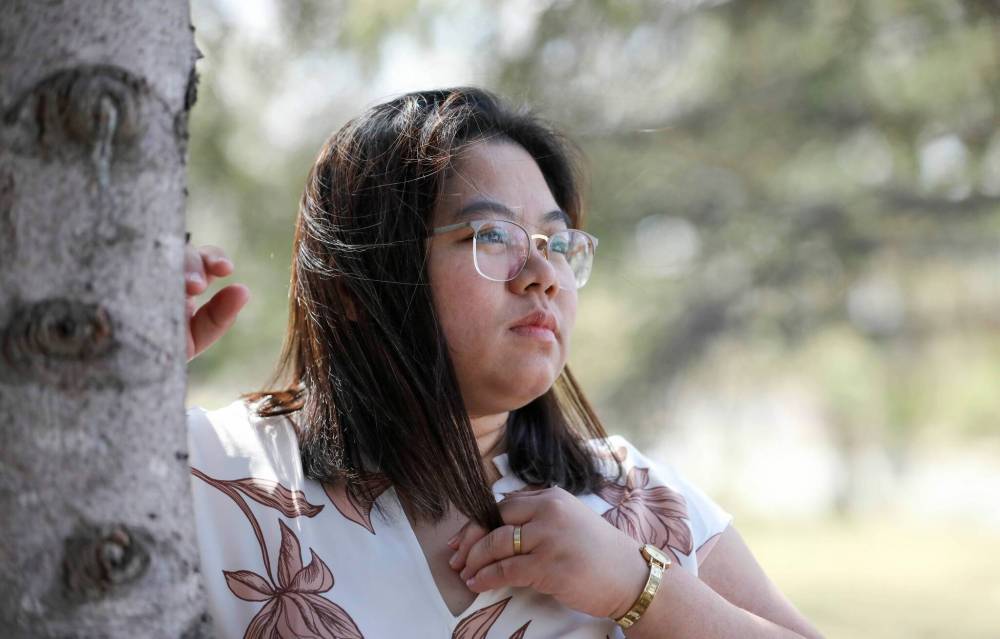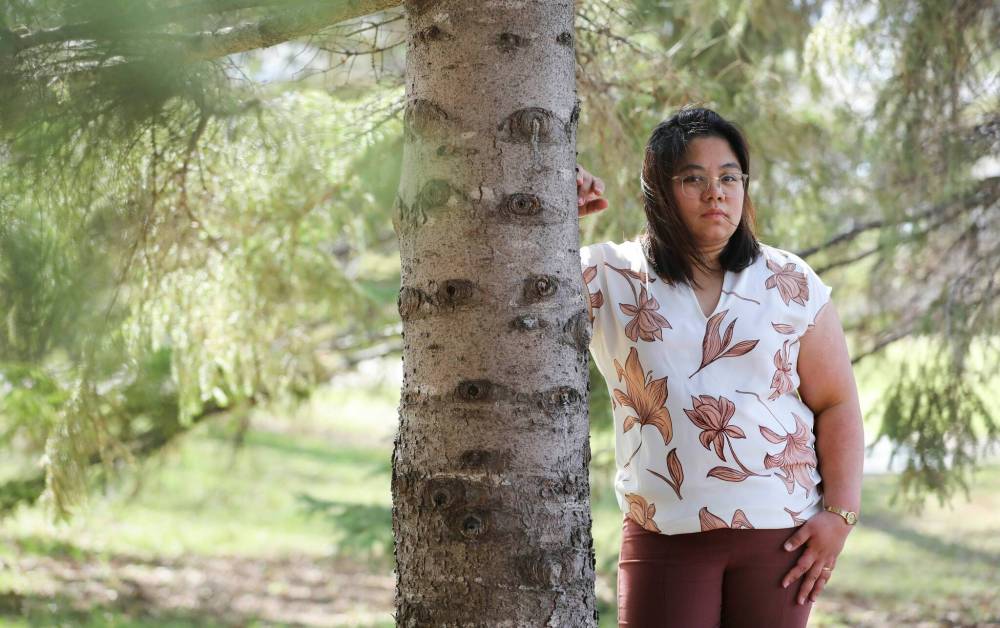Long-term trauma after terror at personal-care home Nurse hopes story of being stabbed by resident serves as wake-up call to improve safety
Read this article for free:
or
Already have an account? Log in here »
To continue reading, please subscribe:
Monthly Digital Subscription
$0 for the first 4 weeks*
- Enjoy unlimited reading on winnipegfreepress.com
- Read the E-Edition, our digital replica newspaper
- Access News Break, our award-winning app
- Play interactive puzzles
*No charge for 4 weeks then price increases to the regular rate of $19.00 plus GST every four weeks. Offer available to new and qualified returning subscribers only. Cancel any time.
Monthly Digital Subscription
$4.75/week*
- Enjoy unlimited reading on winnipegfreepress.com
- Read the E-Edition, our digital replica newspaper
- Access News Break, our award-winning app
- Play interactive puzzles
*Billed as $19 plus GST every four weeks. Cancel any time.
To continue reading, please subscribe:
Add Free Press access to your Brandon Sun subscription for only an additional
$1 for the first 4 weeks*
*Your next subscription payment will increase by $1.00 and you will be charged $16.99 plus GST for four weeks. After four weeks, your payment will increase to $23.99 plus GST every four weeks.
Read unlimited articles for free today:
or
Already have an account? Log in here »
Hey there, time traveller!
This article was published 10/05/2022 (1308 days ago), so information in it may no longer be current.
Locked in the bathroom as a long-term care resident banged on the door trying to get in, nurse Gretchen Marasigan-Esteva looked down and noticed blood in the sink. That’s when she realized she’d been stabbed.
It has taken the licensed practical nurse nearly five months to be able to publicly express her feelings about being attacked at work, and she is still processing the trauma. She was working the evening shift in a Winnipeg long-term care home on Dec. 25 when a male resident became aggressive and assaulted her with scissors. She had to run to the bathroom to get away.
She’s speaking out now, during national nursing week, in hopes her story will serve as a “wake-up call” to improve long-term care staffing.

“I was so scared seeing myself in front of the mirror in the washroom,” Marasigan-Esteva said Tuesday. “My instinct was to call for help, and then it slowly sunk in. And it’s just hard to process. It didn’t (break) me just being a nurse, but (also) being a person… I’m a mom, I’m a wife, and it’s all affected by what happened.”
The evening of the attack, she had been moved to a different floor and was alone at the nurses’ station completing paperwork. The one other on-shift nurse was on break, and health-care aides were busy in residents’ rooms when the assailant approached her, hiding his right hand under a jacket. He had recently shown some aggressive behaviour, but had been perfectly fine earlier in her shift, she said.
The man produced a pair of orange-handled scissors and lunged at her, aiming for her face and neck, and she blocked his attempts by grabbing his hands and then covering her face with her left arm. The man knocked her backwards into a swivel chair, which then toppled.
“I ended up on the floor under the nurses’ desk, and he still chased me there, trying to stab me. I was screaming the whole time,” Marasigan-Esteva said. Eventually, the other nurse heard her screams and was able to pull the man back, giving Marasigan-Esteva a bit of space to crawl out from under the desk and run to the bathroom. The man ran after her, taking an equipment cart from the nurses’ station and using it to try to break open the locked door.
The man’s aggression needs to be addressed in a different facility, Marasigan-Esteva said.
“I think it’s his condition, it’s not himself,” she said.
The 70-year-old man has been charged with uttering threats and assault with a weapon, the Winnipeg Police Service confirmed. Following the attack on Marasigan-Esteva, police learned he’d also attacked and threatened another staff member two days earlier.
The long-term care sector needs more funding and more staff, particularly since residents have more complex needs, said Joyce Kristjansson, a retired long-term care nurse and interim executive director of the Association of Regulated Nurses of Manitoba. She estimated a nurse working a day shift in a care home is now typically responsible for looking after 30 to 40 residents.

“We have a problem that’s been going on for years that’s coming to a crunch right now, which is having enough nurses to care for the population.”
Kristjansson said she plans to meet with the premier and the opposition parties this week to talk about long-term care needs in Manitoba.
The province needs to use health human-resources planning to anticipate nursing needs years in advance, she said, adding she has some optimism after promises were made to enact recommendations from the external review of 2020’s COVID-19 outbreak at Maples Personal Care Home and to implement a provincial seniors strategy.
“I really hope that they look very, very closely at what we need to do in Manitoba to keep people out of long-term care facilities,” she said.
Marasigan-Esteva has been a nurse for 10 years — the first five spent in the Philippines before moving to Winnipeg. Despite her international education, it took her several years to be able to work as a nurse in the field here and realize the career dream she’d had since she was a child.
In the aftermath of the attack, she had to consider whether to continue in the field. She’s receiving workers’ compensation and is on short-term disability, undergoing physiotherapy for the wound in her left arm and counselling to deal with the trauma she experienced.
“Nursing itself is a fulfilling job, and despite what I’ve seen and experienced in the last two years with COVID, and being assaulted at work with a weapon, I still wanted to be a nurse. I still wanted to answer the call and serve others.”
She has decided to go back — eventually.

“I’m still very scared, and there are things that I still want to process properly,” she said.
Marasigan-Esteva said she hopes her experience makes people realize nurses aren’t simply “heroes.”
“We are human,” she said. “We need to feel safe, valued, heard, supported and empowered. By sharing the story I am hoping that we can make a significant change in long-term care.”
katie.may@winnipegfreepress.com

Katie May is a general-assignment reporter for the Free Press.
Our newsroom depends on a growing audience of readers to power our journalism. If you are not a paid reader, please consider becoming a subscriber.
Our newsroom depends on its audience of readers to power our journalism. Thank you for your support.
History
Updated on Tuesday, May 10, 2022 10:57 PM CDT: Fixes typo.









